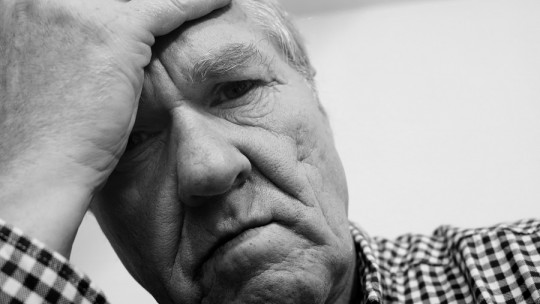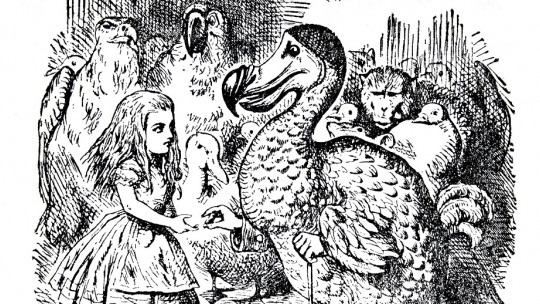Most people have heard about the placebo effect at some point. In the popular imagination, this phenomenon is usually related to those remedies and/or pseudosciences with no real or proven effect that help us feel better physically or mentally. However, the truth is that there are also placebos in the field of medicine or psychology that are often used for therapeutic purposes.
In these cases, the placebo effect can become an empirical resource to quickly and effectively relieve discomfort so that you, as a patient, can focus on treatment, as well as improve your engagement with therapy. However, for this to happen it is not enough to let yourself be carried away by the influence of the placebo, but it is important that you know how this phenomenon works in psychological therapy.
What is meant by the placebo effect in psychological therapy?
To understand the impact that the placebo effect has on psychological therapy, it is important to know what is meant by the placebo effect and its distinction from placebo.
There are various definitions for the term “placebo” but, without a doubt, one of the most accurate is the one offered by psychologists Steve Stewart-Williams and John Podd, who conceive it as “a substance or procedure that has no inherent power to produce a effect that is sought or expected.” Basically, in the field of psychological therapy it is understood as those methods or techniques that generate a change in the patient that does not come from the therapeutic effect of those methods.
Now, the placebo effect is the physiological and/or psychological impact that we attribute to a certain procedure without it actually having the inherent power to cause said effect. In other words, it is nothing more than the effect or consequence of the placebo on our body and/or mind.
In the therapeutic field, the placebo effect would be any psychological intervention with harmless effects that is applied to the patient, but that in reality has no real effect on the problems being treated and that, however, produces beneficial effects on them. . For example, we can talk about the placebo effect when you feel more confident in yourself simply because you have had a therapy session and you believe that the therapy itself is beneficial.
In this context, the placebo effect not only brings out the powerful impact that your expectations, beliefs, thoughts and emotions have on your body and, above all, on your mind, but it can become a useful resource to accelerate your improvement or recovery, helping you commit to therapy.
And in online therapy, how does the placebo effect work?
The bases on which the placebo effect is based are the same in online therapy as in face-to-face therapy. It all starts with a harmless placebo which, in the case of psychological therapy, is usually a therapeutic technique or procedure that the psychology professional uses to generate a change in the patient. Generally, this is an intentional process that is carried out with the aim of making the person feel better, but sometimes there can also be an unintentional placebo effect that occurs without the direct intervention of the therapist.

In any case, placebo is only half of the equation, the other half corresponds to the subjectivity of the patient. This means that for a placebo effect to occur, the person has to be conditioned to the expected outcome. It is precisely this conditioning that is capable of activating in your brain the same neural circuits that would be activated if the technique had a real therapeutic effect. This was confirmed by a study carried out at the Medical University of Turin, in which they exposed 229 people to a placebo medication with a supposed analgesic effect. Neuropsychologists found that the expectation of pain relief in these people reduced their anxiety and stimulated the natural release of painkillers, which actually helped them relieve the discomfort they felt.
However, although we are all vulnerable to getting carried away by the placebo effect, the truth is that this phenomenon is stronger in some people than in others. This is because there are some factors that influence the way we deal with placebos:
1. Expectations
Your expectations play a key role in the effectiveness of the placebo. Basically, The more confident and convinced you are that that technique or therapy will work, the greater your conditioning will be and, as a consequence, better results will be offered to you. In these cases, the effect of self-fulfilling prophecy also applies, according to which the expectations that the people around you have about said result can also influence your perception and suggestibility.
2. Personological characteristics
Did you know that if you are a sensitive person you will be more vulnerable to the placebo effect? Likewise, more structured people, who like to follow instructions to the letter and those who easily trust others are more suggestible with this phenomenon. In the same way, If you are resilient, you will give in more easily to this effect as revealed by a scientific study carried out at the University of Michigan.
3. The experience
Your experience is another factor that can influence your suggestibility to a placebo. Basically, the more you accumulate life experiences, the harder it is to let yourself be conditioned and give in to a placebo effect. Of course, Not only the quantity of experiences influences but also their quality. In the same way, if you have had previous positive experiences with the use of psychological services, it will be easier for you to trust in therapy and succumb to a placebo effect than if you have had negative experiences.
4. Stress and anxiety levels
Did you know that people who suffer from anxiety are more easily suggested when compared to a placebo ? Likewise, you are more likely to give in to the placebo effect if you are under high levels of stress. The causes are not known with certainty, but it is believed that it may be related to the action of the placebo on neurotransmitters in the brain that act, in turn, reducing your anxiety and stress levels.
5. Genetics
relatively recently It has been discovered that genetics also influences your predisposition to the placebo effect. Research carried out at Uppsala University, in Sweden, found that a variation of the TPH2 gene, which is involved in regulating the activity of the amygdala, a crucial brain structure in emotional processing, increases people’s sensitivity to a placebo.
Of course, the relationship established between the psychologist and the patient is also essential in the response to the placebo. Other factors may also come into play, such as, for example, the trust you place in your therapist, the characteristics of the space you are in at the time of the consultation or even the attitude of your psychologist.
How can the placebo effect help in online therapy?
Contrary to what many believe, the placebo effect is not a method that the therapist uses to “deceive” the patient or a simple suggestion technique. Well used, the placebo effect can become a valuable empirical resource to alleviate the patient’s symptoms and improve their commitment to treatment in online therapy. Its proper use can help reduce your psychological discomfort so you can focus on the techniques and procedures that will help you solve your problems and improve your quality of life.
In fact, the placebo effect can be a good ally to reduce emotional pain in people, in addition to helping to reduce anxiety and stress levels and improving signs of depression. A study carried out at the University of Chile found that the placebo effect can also alleviate the symptoms of hypochondria, while it can contribute to strengthening self-esteem or self-confidence. Hence, it can not only become a useful resource in online therapy to reinforce therapeutic adherence, but also to help you during your recovery.
In summary, the placebo effect has to do with the effectiveness that we attribute to a medication or a technique that we subjectively interpret as good or bad for each person. Hence, many people are suggested by reading the package inserts of medications with the effects they may cause. If we believe that something is going to do us good, it is more likely to have that effect on us, hence the importance of considering therapy as beneficial even before starting it.









